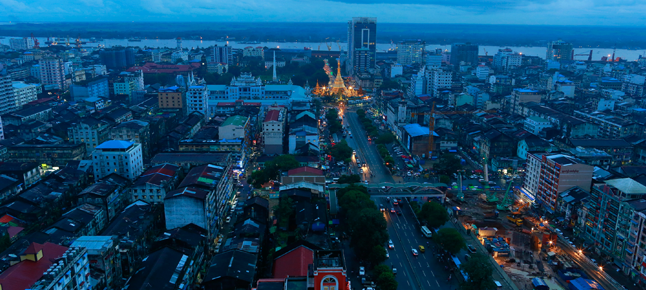The Road to Myanmar?

The following article was published by the Canadian International Council’s Open Canada on May 14th, 2014. The text can be found here. I am also reproducing the full text below. The image is courtesy of Reuters.
The recent death of Myanmar’s longest serving political prisoner, Win Tin, and growing awareness of the plight of the country’s minority Muslim Rohingya has received little media coverage in Canada, save for OpenCanada. This is perhaps unsurprising given the small number of Canadians who have experience in this part of the world.
My own earliest exposure to Burma may have been listening to a recording of the old song “The Road to Mandalay,” with lyrics adapted from Kipling. On my first trip to southeast Asia in the mid-eighties, a few stalwart young foreigners were starting to visit Yangon (Rangoon), which was still relatively difficult to access. The country’s reputation at the time was tainted by human rights abuses and recalcitrant military rule. In the decades since, we have witnessed the house arrest and subsequent release of Aung San Suu Kyi and the gradual opening up of this isolated country. Economically speaking, this has been in keeping with changes in the region, such as Doi Moi in Vietnam, which began in the 1990s. However, Myanmar is on its own unique path of transformation, especially politically, including experimentation with multiparty elections in recent years. That said, some have concluded that the experiment has thus far failed due to continued control of the military and reports of electoral irregularities and voter intimidation.
Professor Robert Anderson of Simon Fraser University, who has been conducting research in Myanmar for 15 years, has been urging leaders in higher education and diplomacy to pay attention to the rapidly shifting sands in Myanmar, just as the Europeans and Chinese have been doing for some time. The changes are not without their challenges and controversies, particularly in light of the watershed moment associated with the chairing of ASEAN’s upcoming meetings in May. As recently as May 9th, the media reported that an Australian journalist was deported from Myanmar for covering a demonstration calling for greater freedom of the press.
The crossroads between South and Southeast Asia is intriguing. Previously administered as part of British India, Burma exhibits features of both regions. The educated elites speak Indian English, the diet has South Asian influences, and the highly diverse ethnic composition of the country—including the Bengali-speaking Rohingya—reflects the country’s geography and history.
The controversy regarding the naming of the country is in many ways indicative of the current struggle to chart a more open, democratic, and economically viable course for this highly multiethnic society. According to Dr. Ba-Thann Win, political expert and Burmese dissident, the choice of name is politically significant. He deliberately uses the name Burma rather than Myanmar. Besides taking issue with dictators changing the name of the country without popular consent, Dr. Win reminds us that the word “Myanmar” privileges one ethnic group rather than all of them in this multicultural country. This name change, he argues, takes the vision for the polity further away from the Panglong Agreement of 1947 spearheaded by the father of Aung San Suu Kyi, which garnered the support of all the major ethnic groups to create an inclusive vision for a united Burma on the eve of independence from India. Others, however, point out that the colonial term ‘Burma’ refers to people who speak the Bamar language and who once occupied the Irrawaddy River heartland of the country, leaving out other ethno-linguistic groups and particularly those on the frontiers.
Meanwhile, as both Dr. Win and Professor Anderson explained in recent presentations at the University of British Columbia (UBC), the country has been undergoing breathtaking changes over the past few years and Canadian students are taking a growing interest in Burma. While there has been an official transition away from military rule and the iconic Aung San Suu Kyi has been released from house arrest to become a controversial contender for political power, the country still has several struggles to overcome to fully open up democratically.
Given the country’s strategic location, China and other world powers are taking serious interest in developing mining resources, shipping energy across the country via pipelines, and investing in large hydro-electrical projects. The financial figures are staggering. Burma/Myanmar now has 15 billionaires and that figure is expected to grow to 20 by 2020 according to Dr. Win. Preliminary statistics from Professor Anderson indicate that foreign direct investment has grown twelve-fold from 2008-09 to 2010-11. While Canadian trade with Burma is still in its infancy, young Vancouver telecoms entrepreneurs like Rita Nguyen of SQUAR are riding the wave of wireless penetration, which has grown from 10 percent in 2012 to nearly 30 percent this year. However, telecom and Internet costs remain among the highest in the world.
Post-secondary institutions from around the world are also beginning to take notice and collaborate with Burma’s emerging higher education community. Following a high profile visit to Vancouver in Fall 2013 of Dr. Aung Tun Thet—Chief Economic Advisor to the President of Myanmar—The University of British Columbia recently announced Dr. Thet’s appointment as Honorary Professor at UBC’s Institute of Asian Research. The announcement was made in late February in Yangon at a “nationally televised ceremony and in the presence of the Canadian, Singapore and Indian Ambassadors to Myanmar, several leaders of universities, students, investors and businesses.” Discussions on Canadian campuses seem to be indicating that the higher education community, spurred on in part by the interest of a growing cadre of young Canadian students, is taking an interest in political developments in the country.
In light of a growing economy and opportunities for democracy and economic growth in the country, Myanmar is at an interesting and fruitful turning point in its engagement with the world and Canada should be an integral part of this engagement.